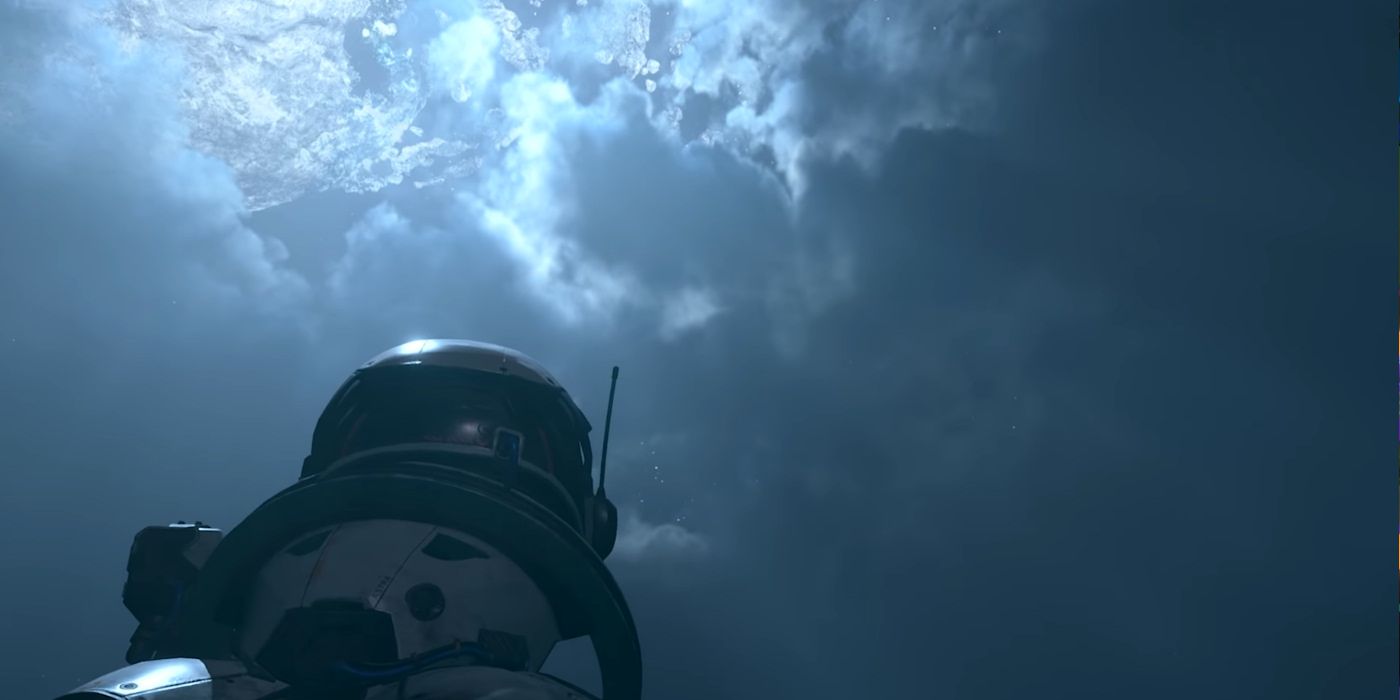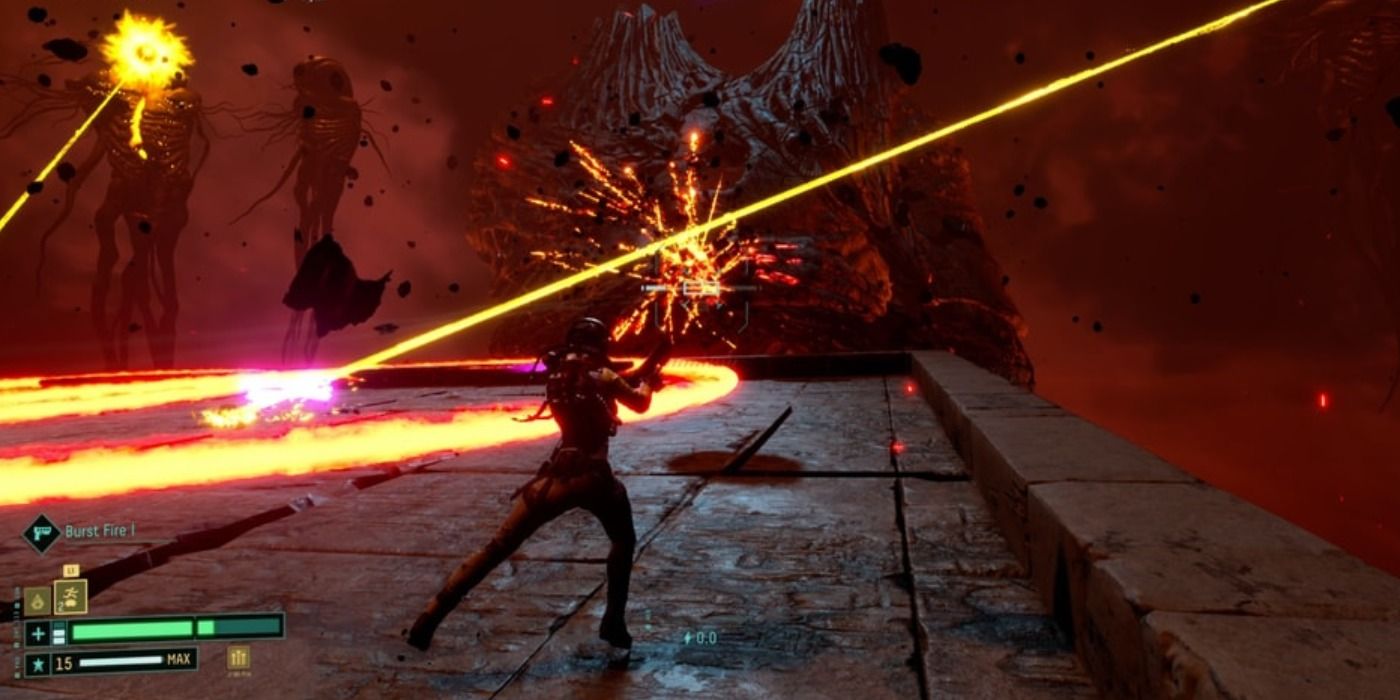
Returnal, one of the big PS5 exclusives in the early days of the console’s life, is a notoriously difficult game, one made harder through the way it employs randomness. It sits uniquely at a crossroads between third-person action games, bullet hell games (or “shmups” in the colloquial), and roguelites. This combination often works well, providing a satisfying loop of combat and exploration, but sometimes the roguelite elements insert themselves between the game’s challenge and individual player skill, and it's this disconnect that has likely pushed Returnal out of the conversation around current-gen games earlier than it may have deserved.
Praised for its visual and sound design, Returnal struggled with some of its technical underpinnings. Returnal still lacks a mid-run save feature, even in the style of a temporary-one-time save for players who may share a console or lead busy lives, which is a matter of some concern for a run-based game that requires players to restart from the beginning each time they fail. For a run-based game like The Binding of Isaac or Spelunky, which move at a comparatively brisk pace, this sort of design philosophy would likely be less of a problem, but it becomes a different issue entirely given that a single run of Returnal can take hours.
What makes Returnal unique also becomes a constant thorn in its side when it comes to difficulty. The random nature of each of Returnal's long runs keeps things from growing stagnant over the course of repeated attempts, but it also leads to abortive runs that simply never get off the ground. While Returnal’s above-average visuals, sumptuous sound design, and intriguing story may keep players on track for many hours, frustration can creep in when luck is in short supply.

While the procedural nature of its level design and progression sets it apart, Returnal ultimately suffers for it, particularly where it comes to its action. In a game like DOOM Eternal, players are set loose upon the world to their level of ability, with a set number of challenges and aids based on the difficulty level chosen. A game like Dark Souls, on the other hand, while not allowing for players to select varying levels of difficulty, still has a world with set challenges, allowing for players to hone particular skills or practice challenges repeatedly, all while knowing what their available tools will generally be.
While some may find that Returnal lacking a selectable difficulty level to begin with is a problem, the real issue is that even if it did, the variability inherent to its gameplay loop means that the difficulty never quite feels balanced. The variety that comes as part of its procedural generation, and which does a lot to keep things interesting over the long haul, can occasionally provide challenges that even skillful play may not be enough to overcome. Since success too often relies on the right combinations of upgrades and weapons, this makes Returnal potentially even more frustrating than notoriously difficult games like Bloodborne or Sekiro, which at least avoid randomness in their difficulty curves despite a higher barrier to entry generally.
Returnal is still a game worth playing, with many interesting ideas in its risk-reward gameplay structure, and plenty of beautiful sights to see and interesting challenges to overcome. When things are working right, its difficulty is also a satisfying challenge. Yet between the struggle for many gamers to actually purchase a PS5 of their own, and the RNG-related imbalances in the game itself that can sometimes cause too much frustration, Returnal's contribution to the current-gen conversation may have ended before it truly had the chance to make a statement.
from ScreenRant - Feed https://ift.tt/3nRHPz2

0 Comments